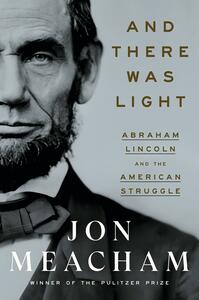You need to sign in or sign up before continuing.
Take a photo of a barcode or cover
Lincoln was a man and should be examined as a man I appreciate a lack of deism present in a lot of books. It helps you appreciate what he did accomplish and more so what was accomplished by those seeking freedom.
emotional
hopeful
informative
inspiring
reflective
slow-paced
informative
inspiring
reflective
slow-paced
I don't think I'll be able to finish this one. The author is laying bare his biased opinion of Lincoln (and other earlier American politicians) often ascribing a modern American Christian sensibility to them, and assuming that the evidence he presents concerning their general skepticism regarding religion must be wrong. The author can't seem to grasp that men like Lincoln, or Jefferson, for that matter, whom he discusses in the book as well, were not the devout Christians that he so badly wants for them to be. This biased perception taints his writing and makes his prose and philosophical meanderings difficult to read if you as a reader aren't already on board with the "America is a Christian Nation" malarky.
The path of Abraham Lincoln’s presidency is well-trod. Throughout the Civil War and in the 160 years since, much ink has been spilled in the fight to vilify or deify him. Were his actions the result of cold calculation, or a sign of his pure goodness? Meacham’s biography does its best to thread the needle between these dichotomies. The truth of Lincoln’s character lies somewhere in the middle, influenced by his understanding of faith and morality as well as the realities of the world in which he lived.
I love reading about Abraham Lincoln. He was a complicated person with complicated feelings who led the country through its most complicated season. And There Was Light is an impeccably detailed study of a man who was shaped by the time in which he lived, but was open enough to imagine and move his country toward a world in which good was possible.
Add this to your TBR if you enjoy history, character studies, and hard truths.
I love reading about Abraham Lincoln. He was a complicated person with complicated feelings who led the country through its most complicated season. And There Was Light is an impeccably detailed study of a man who was shaped by the time in which he lived, but was open enough to imagine and move his country toward a world in which good was possible.
Add this to your TBR if you enjoy history, character studies, and hard truths.
adventurous
informative
reflective
slow-paced
Meacham demonstrates, overtly and through subtle demonstration, the parallels between the American Struggle of the Civil War and today. Bravo.
adventurous
challenging
dark
emotional
funny
hopeful
informative
inspiring
lighthearted
mysterious
reflective
relaxing
sad
tense
medium-paced
dark
emotional
hopeful
informative
inspiring
reflective
sad
medium-paced
Meacham is such a wonderful biographer and finds a variety of ways to interpret the life of someone everyone seems to know so well. He is not the plaster saint he is universally revered but a flesh and blood mortal. Oh, that we had such a man today!



